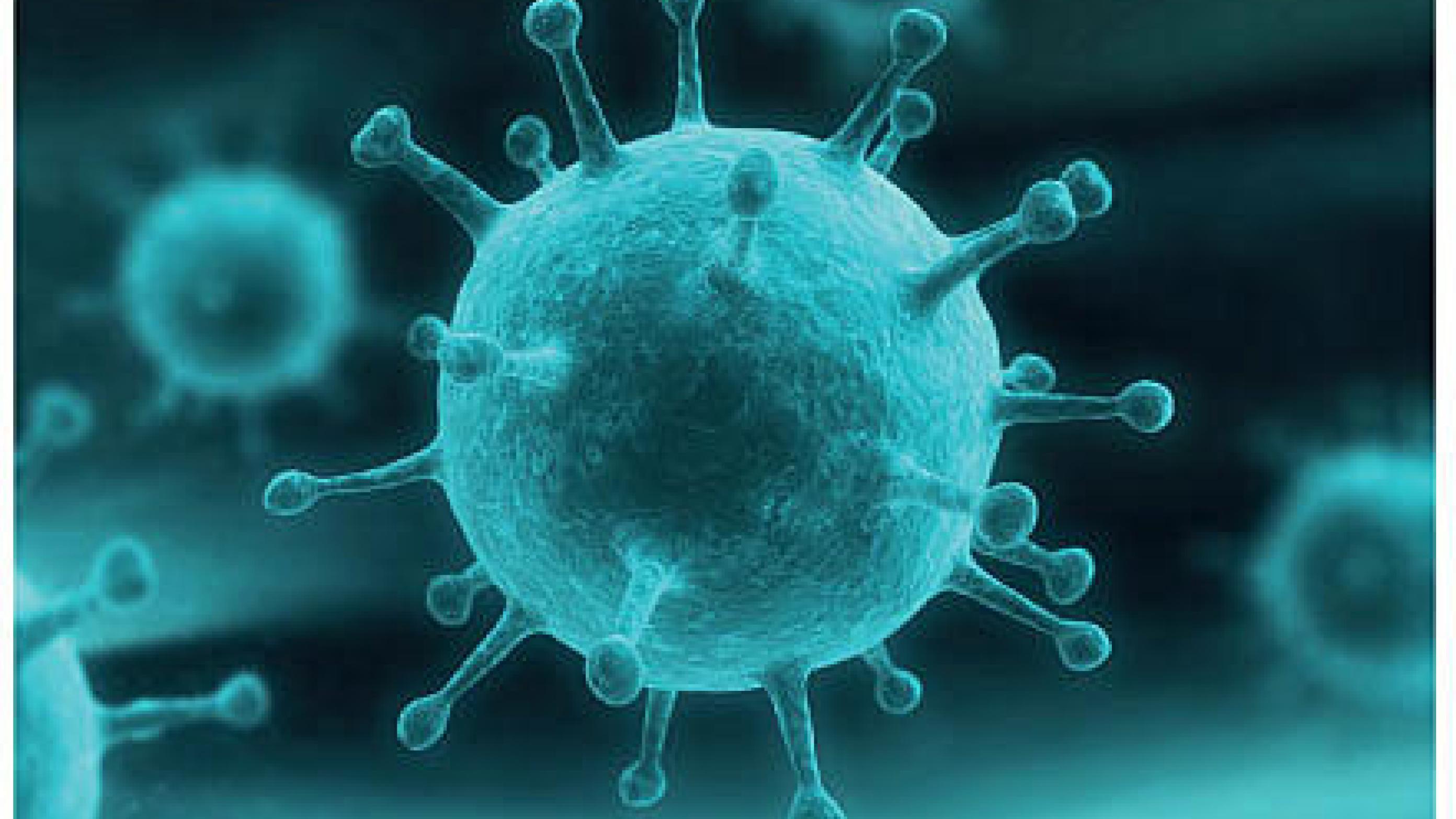Influenzavaccination af onkologiske patienter


Anna Andreeva1, Anne-Cathrine Bareid Østby2 & Anders Mellemgaard2
Influenzavirus.
Influenza infection adds to the morbidity and mortality in cancer patients. This paper reviews studies on the ability of adult cancer patients to develop a protective immunological response to influenza vaccination. The studies showed that patients undergoing chemotherapy were able to develop an immunological response and seroprotection. The ideal administration time in the course of a chemotherapy treatment was unclear, but the longest time from chemotherapy was preferred. Repeated vaccination may be beneficial. Influenza vaccination is safe, inexpensive and easily available.
Fiore AE, Shay DK, Broder K et al. Prevention and control of seasonal influenza with vaccines: recommendations of the Advisory Committee on Immunization Practices. MMWR 2009;58:1-52.
Gasparini R, Amicizia D, Lai PL et al. Effectiveness of adjuvanted seasonal influenza vaccines (Inflexal V and Fluad) in preventing hospitalization for influenza and pneumonia in the elderly: a matched case-control study. Hum Vaccin Immunother 2013;9:144-52.
Kavanaugh DY, Carbone DP. Immunologic dysfunction in cancer. Hematol Oncol Clin North Am 1996;10:927-51.
Finke J, Ferrone S, Frey A et al. Where have all the T cells gone? Immunol Today 1999;20:158-160.
Griffiths RW, Elkord E, Gilham DE et al. Frequency of regulatory T cells in renal cell carcinoma patients and investigation of correlation with survival. Cancer Immunol Immunother 2007;56:1743-53.
Gigante M, Blasi A, Loverre A et al. Dysfunctional DC subsets in RCC patients: ex vivo correction to yield an effective anticancer vaccine. Mol Immunol 2009;46:893-901.
Pardoll DM, Topalian SL. The role of CD4þ T cell responses in antitumor immunity. Curr Opin Immunol 1998;10:588-94.
Cooksley CD, Avritscher EB, Bekele BN et al. Epidemiology and outcomes of
serious influenza-related infections in the cancer population. Cancer 2005;104:618-28.
Ring A, Marx G, Steer C et al. Poor uptake of influenza vaccinations in patients receiving cytotoxic chemotherapy. Int J Clin Pract 2003;57:542-3.
Yee SS, Dutta PR, Solin LJ et al. Lack of compliance with national vaccination guidelines in oncology patients receiving radiation therapy. J Support Oncol 2010;8:28-34.
Lulergue P, Mir O, Alexandre J et al. Low influenza vaccination rate among patients receiving chemotherapy for cancer. Ann Oncol 2008;1:1658.
Coudeville L, Bailleux F, Riche B et al. Relationship between haemagglutination-inhibiting antibody titres and clinical protection against influenza: development and application of a Bayesian random-effects model. BMC Med Res
Methodol 2010;10:18.
Craig C, Earle J. Influenza vaccination in elderly patients with advanced colorectal cancer. J Clin Oncol 2003;21:1161-6.
Xu Y, Methuku N, Coimbatore P et al. Immunogenicity of an inactivated monovalent 2009 influenza A (H1N1) vaccine in patients who have cancer. Oncologist 2012;17:125-34.
Hottinger AF, George AC, Bel M et al, H1N1 Study Group. A prospective study of the factors shaping antibody responses to the AS03-adjuvanted influenza A/H1N1 vaccine in cancer outpatients. Oncologist 2012;17:436-45.
Lagler H, Tobudic S, Ramharter M et al. Pandemic whole-virion, Vero-cell-
derived, adjuvant-free influenza A H1N1 vaccine in patients with solid tumors and hematologic malignancies receiving concurrent anticancer treatment:
immunogenicity, tolerability, and acceptability during the pandemic situation. Vaccine 2012;30:6864-8.
Rousseau B, Loulergue P, Mir O et al. Immunogenicity and safety of the influenza A H1N1v 2009 vaccine in cancer patients treated with cytotoxic chemotherapy and/or targeted therapy: the VACANCE study. Ann Oncol
2012;23:450-7.
Mackay HJ, McGee J, Villa D et al. Evaluation of pandemic H1N1 (2009) influenza vaccine in adults with solid tumor and hematological malignancies on
active systemic treatment. J Clin Virol 2011;50:212-6.
de Lavallade H, Garland P, Sekine T et al. Repeated vaccination is required to optimize seroprotection against H1N1 in the immunocompromised host.
Haematologica 2011;96:307-14.
Nordøy T, Aaberge IS, Husebekk A et al. Cancer patients undergoing chemotherapy show adequate serological response to vaccinations against influenza virus and Streptococcus pneumoniae. Med Oncol 2002;19:71-8.
Pollyea DA, Brown JM, Horning SJ. Utility of influenza vaccination for oncology patients. J Clin Oncol 2010;28:2481-90.
Ramanathan RK, Potter DM, Belani CP et al. Randomized trial of influenza vaccine with granulocyte-macrophage colony-stimulating factor or placebo in cancer patients. J Clin Oncol 2002;20:4313-8.
Roman F, Vaman T, Gerlach B et al. Immunogenicity and safety in adults of one dose of influenza A H1N1v 2009 vaccine formulated with and without AS03A-adjuvant: preliminary report of an observer-blind, randomised trial. Vaccine 2010;28:1740-5.
Marra F, Young F, Richardson K et al. A meta-analysis of intradermal versus intramuscular influenza vaccines: immunogenicity and adverse events. Influenza Other Respi Viruses 2013;7:584-603.
Keitel WA, Atmar RL, Nino D et al. Increasing doses of an inactivated influenza A/H1N1 vaccine induce increasing levels of cross-reacting antibody to subsequent, antigenically different, variants. J Infect Dis 2008;198:1016-8.